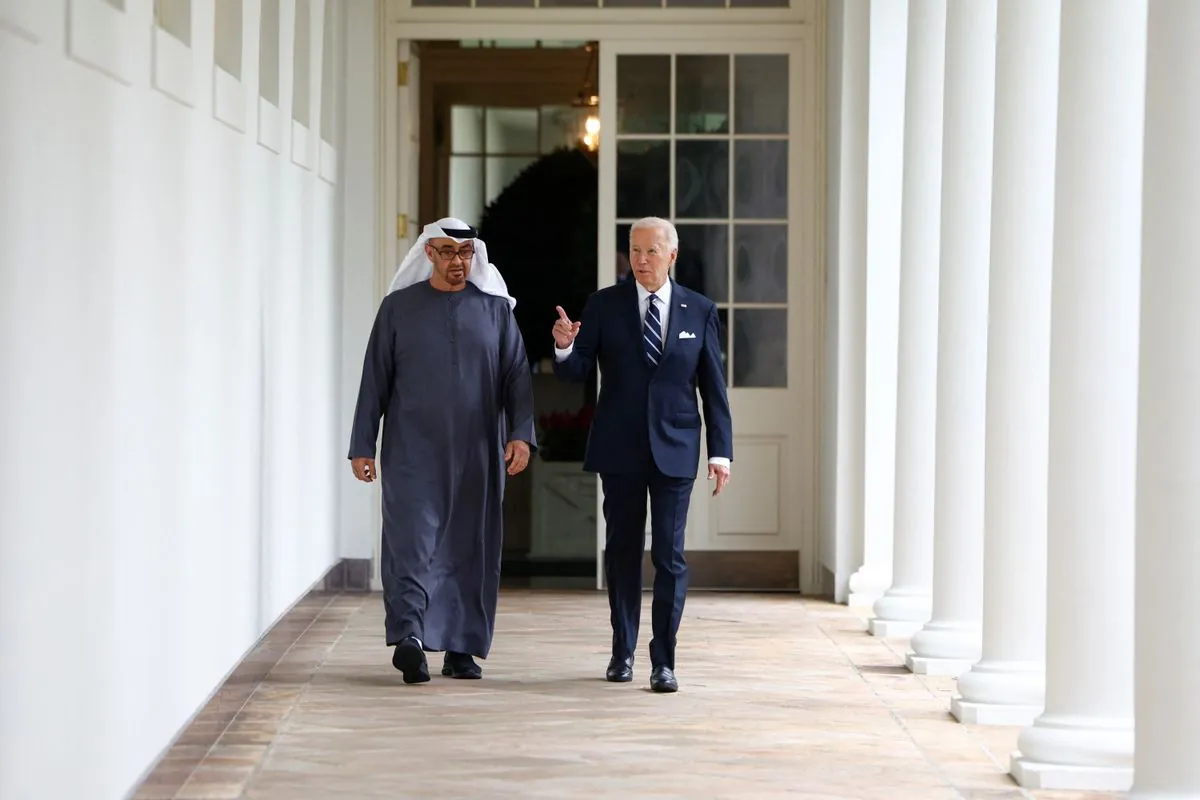UAE Bolsters US Ties Amid Tech Focus and Defense Partnership
UAE reinforces US relations following presidential visit, gaining major defense partner status. Focus on AI cooperation and meetings with tech leaders highlight strategic priorities.

The United Arab Emirates (UAE) is reinforcing its relationship with the United States, as indicated by recent high-level diplomatic engagements. This development comes in the wake of a historic visit by Sheikh Mohamed bin Zayed Al Nahyan, the UAE's president, to the United States in late September 2024.
During this landmark trip, Sheikh Mohamed held discussions with key US political figures, including President Joe Biden, Democratic presidential candidate Kamala Harris, and Republican candidate Donald Trump. This visit marked the first time a sitting Emirati president has traveled to the US since the UAE's establishment in 1971, underscoring the significance of the diplomatic mission.
A notable outcome of the visit was the US recognition of the UAE as a major defense partner. Sheikh Abdullah bin Zayed Al Nahyan, the UAE's Foreign Minister, expressed satisfaction with this development, stating that it reflects confidence in US policy. The UAE has long been a security partner of the US, participating in joint military campaigns and hosting US troops in Abu Dhabi.

Despite this strengthened alliance, the relationship has not been without challenges. Washington has expressed concerns about the UAE's warm relations with China, particularly in the technology sector. However, recent developments suggest a shift in this dynamic. The UAE has demonstrated its commitment to addressing these concerns by having a state-backed Emirati technology firm divest Chinese hardware and investments.
In line with its focus on technological advancement, the UAE is deepening cooperation with the US in the field of artificial intelligence. This aligns with the UAE's broader strategy of economic diversification and technological innovation. The country has been rapidly moving away from oil dependency and has even appointed a Minister of State for Artificial Intelligence, showcasing its commitment to this sector.
During his US visit, Sheikh Mohamed met with prominent tech industry leaders, including Satya Nadella, CEO of Microsoft, and Jensen Huang, CEO of Nvidia. These meetings highlight the UAE's ambition to position itself as a global tech hub and its interest in fostering partnerships with leading American technology companies.
The UAE's commitment to technological advancement is further evidenced by its space program achievements. In 2019, the country launched its first astronaut into space, and in 2021, it became the first Arab nation to send a mission to Mars. The UAE has also announced plans for a mission to the asteroid belt in 2028, demonstrating its long-term commitment to space exploration.
While strengthening ties with the US, the UAE continues to pursue its ambitious domestic and international goals. The country aims to achieve net-zero emissions by 2050, showcasing its commitment to sustainability alongside technological progress. Additionally, the UAE has been actively working on diversifying its economy, implementing new policies such as the introduction of corporate tax in June 2023 and launching a golden visa program for long-term residency in 2019.
As the UAE continues to navigate its relationship with the US and pursue its strategic objectives, it remains a key player in the Middle East. With its unique position as a hub for innovation, diplomacy, and economic growth, the UAE's evolving partnership with the US will likely have significant implications for regional dynamics and global technological advancement.
"The UAE remains very bullish about the U.S."
This statement from the UAE's top diplomat encapsulates the country's positive outlook on its relationship with the United States, despite past challenges. As both nations continue to collaborate on defense, technology, and economic initiatives, the partnership appears poised for further growth and mutual benefit.


































